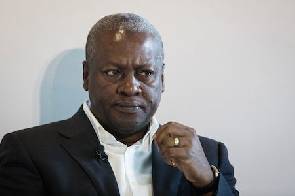 The Institute of Economic Affairs is proposing major electoral reforms ahead of the high-stake 2016 election.
The Institute of Economic Affairs is proposing major electoral reforms ahead of the high-stake 2016 election.
Key and most fundamental of the reforms is the change in the electoral calendar to allow for elections to be held on November 7, instead of the December 7 election date.
The proposal was part of many suggestions discussed and approved at a workshop organized by the IEA in partnership with political parties and all stakeholders in Ghana’s political landscape.
Under the IEA Electoral Reform Project, the group discussed key issues including the role and powers of the Electoral Commission in the conduct of election, biometric Voter Registration and e-voting, election security etc.
It was agreed that the elections be held a month earlier than usual in order for all transition bottlenecks to be resolved before a new president is sworn into office.
“Bringing the Election Day forward to 7th November would therefore allow ample time for run-offs (which are expected to be conducted three weeks after the General Elections) and settlement of possible legal battles disputes after the election. This would in turn ensure ample time for proper handing over and transition in a manner that ensures policy continuity and good governance. The political transitions of 2001 and 2009 were severely inhibited due to the run-offs that took much of the limited time for the handing over of power” a report released and signed by Dr Ransford Gyampo a Research Fellow at the IEA said.
“Indeed there were severe time constraints, since the transfers were forced to take place within the short period of six days, 1st January to 6th January for the 2001 transition; and an even shorter period of three days, 4th January to 6th January for the 2009 transition (as a result of the Tain run-off election).
Needless to say, the short periods between the declaration of the results and the commencement of the transfer process in both cases did not allow the losing party sufficient time to properly re-orient itself for the transfer. Hence a lot of mistakes were made” including seizures of cars and ejection of former minister from houses,” the report added.
Inherent in the proposal is the call for a likely future election petition to be settled before a new president is sworn into office.
Contrary to the eight month long petition, as witnessed in Ghana’s 2012 election the IEA said: “Election petitions should be disposed off expeditiously to improve public trust in the judiciary and enhance good governance. This must last not more than three weeks in a manner akin to what pertains in Kenya where an election petition received on 16th March 2013 was disposed off by 30th March of the same year.”
The IEA said the reforms must of necessity be implemented to protect the country’s infant democracy.





